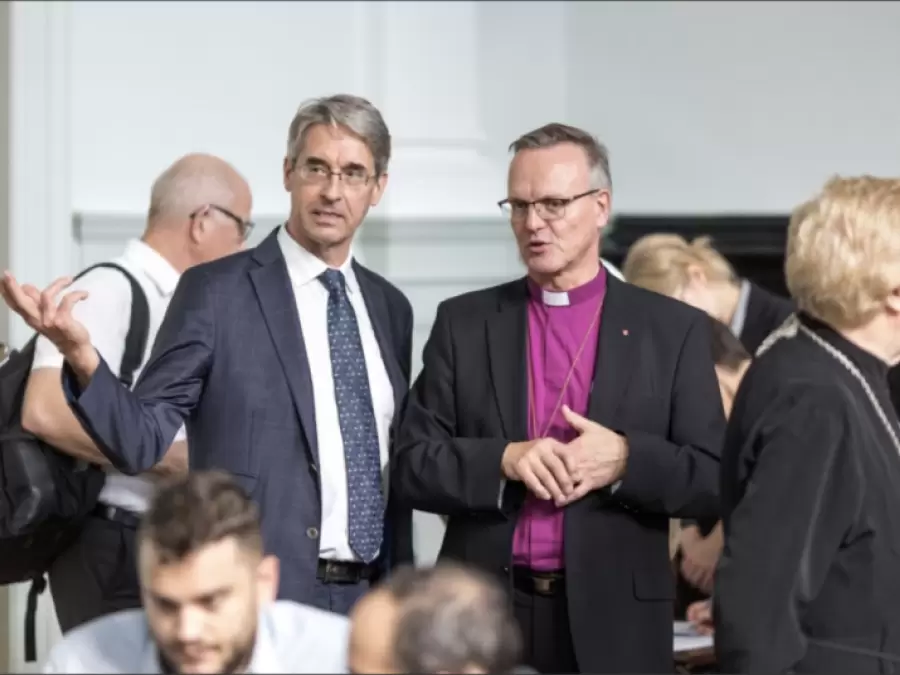It has been an immemorable year for many reasons.
Arriving to Budapest for the first time in late January, in the middle of the pandemic and the ongoing curfew, was an experience in itself. Coming from the airport in a taxi at midnight, I was amazed to see this great city of 2 million people completely empty from pedestrians. Everything was dark until we reached the Danube and its beautifully lit buildings and bridges. My first thought was: this sure beats my hometown Riihimäki (a small town of 28,000 people some 70 km north from Helsinki).
Since then, we have seen a roller coaster like development of Covid-19 cases in Hungary. First, with slowly decreasing cases until the summer, when the society opened again, and later, with dramatically increasing and finally stabilizing figures during the autumn.
Obviously, these developments had direct impacts also on FinnAgora’s activities. From early August to late November, we could finally organize live events, which at the end of the day are the essence of our work. (Webinars are fine, but you never really manage to meet people and make new contacts, which is crucial to our work.)
So you can imagine our enthusiasm when, at last, we could organize art exhibitions (such as the Encounters ceramics exhibition), language courses (such as Language Café), live seminars (such as the one on the Role of Minority Churches in a Multicultural Europe), and to show Finnish movies in real cinema theaters and not only as online events.
Alas, due to the pandemic, we had to turn our two Finnovation events (a seminar in May on the Green Transition and Sustainable Finance and a conference in December on Low-Carbon and Circular Economy) into online events. On the other hand, the advantage with these high-profile webinars was that they can now be downloaded from our website and shown freely to anyone who might be interested in the major challenges that humanity is currently facing.
But the greatest experience of all was our visit to Szeged. Each one of the three events (a photo exhibition on Finnish female rock musicians, a film on the world-famous Finnish artist and cartoon drawer Tove Jansson, and a seminar on Finnish and Hungarian education policies organized at the University of Szeged) gathered a large audience, which would have been quite an achievement in the capital region. Furthermore, in each case, we attracted a wide variety of people from all age groups, who were clearly interested in Finnish culture and education.
Consequently, we intend to continue our visits next year to other cities, such as Debrecen, Pécs and Veszprém, while organizing a multitude of events in Budapest as well.
The foundation governing the activities of FinnAgora will celebrate its 20th anniversary in 2022. Therefore, we hope to widen the scope of our activities to new topics that could interest the Hungarian audience, such as a conference on the solutions provided by the private sector to tackle climate change, or discussions on sexual and ethnic minorities in Finland and Hungary, with the aim to exchange experiences and best practices and to learn from each other.
Similarly, we will organize a wide variety of cultural events, such as contemporary music concerts (jazz and rock), art exhibitions, literature nights and film festivals, among others.
Finally, we intend to continue our interviews (Guest of the Month and Point Taken podcast series) published on our website on a regular basis. However, the latter one will be on hold for a few months until I return back to Budapest in May. Until then, the interim director Anneli Temmes will lead the activities of the institute, which she knows already from the times when she was its director in 2008-2009.
I want to thank our whole team for its magnificent work during this challenging year. None of these events would have been possible without their dedication and commitment.
Last but not least, special thanks to our Hungarian friends who continue to follow our activities with increasing interest. I really look forward to seeing you again next year. Hopefully, by then, the pandemic will have eased, so that we can share experiences and enjoy meeting each other as we used to.
I wish you all a peaceful Christmas and a prosperous New Year.
Eero Yrjö-Koskinen
Director, FinnAgora

